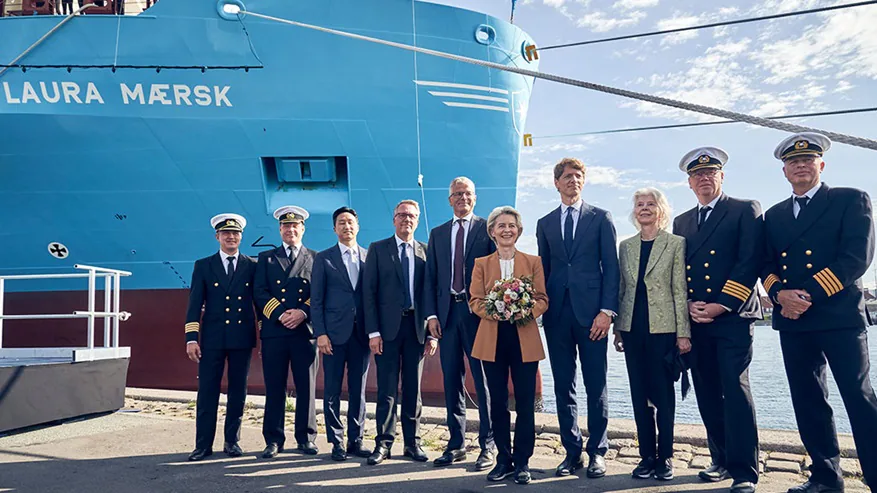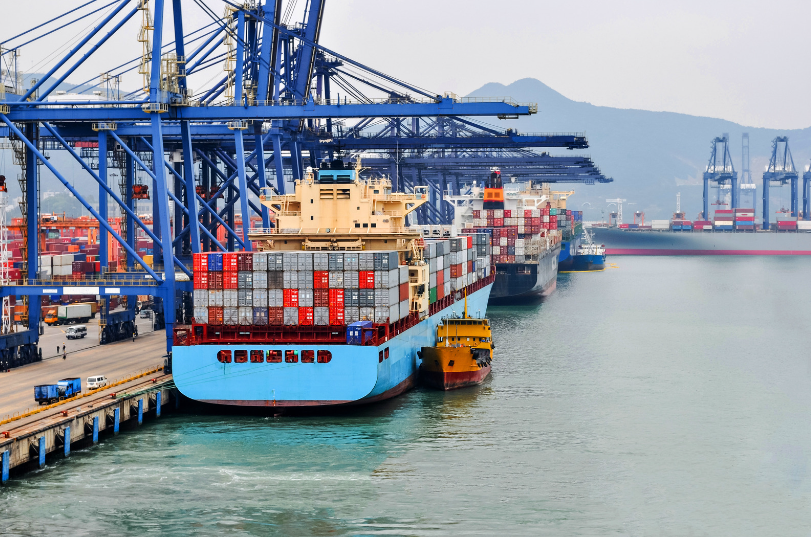Laura Maersk
The world’s first container vessel sailing on green methanol was formally christened by European Commission President Ursula von der Leyen.
News
Carbon capture, storage and utilisation
Climate partnerships
Energy storage
+6

Photo credit: Maersk

At a ceremony at Copenhagen’s quayside on 14 September, the world’s first green methanol container vessel was formally named by President of the EU Commission, Ursula von der Leyen. Maersk’s 172-meter-long vessel capable of carrying 2,136 twenty-foot containers was named Laura Maersk after the first ship to sail with company’s white star on blue logo in 1886.
Maersk took delivery of the world’s first such container vessel in July when it began its debut journey from South Korea to Europe. The vessel will begin operating in the Baltic Sea in October.
The Danish-flagged vessel has been described as a key milestone for A.P. Moller-Maersk’s plans to achieve net-zero greenhouse gas emissions by 2040 across the entire business, to meet the 2040 target in time, A.P. Moller-Maersk aims to transport a minimum of 25% of Ocean cargo using green fuels by 2030, compared to a 2020 baseline.
The world’s first container vessel sailing on green methanol was formally christened by European Commission President Ursula von der Leyen.

On the same day that Maersk inaugurated its first methanol-capable ship, A.P. Moller Holding announced the establishment of the company C2X. C2X will build, own, and ultimately operate factories around the world with the goal of having a production of sustainable fuel of three million tons per year by 2030.
”Towards 2050, the annual demand for methanol could triple to some 300 million tonnes, with the majority being green methanol. C2X is addressing this challenge through investments in large-scale green methanol production facilities and aims to support a variety of customers in the chemicals and shipping sectors who need green methanol.”
The goal is to establish production around the world. So far, a site close to the Suez Canal in Egypt and Huelva in Spain have been identified as the first locations.
Today, almost all methanol is produced from fossil fuels, underlining the need to transform the production.

The significant contribution to the development of new energy sources, including offshore wind parks and carbon capture and storage, makes the Danish shipping industry a key partner in decarbonising global shipping.
Learn more about Danish green shippingsolutions
Combined heat and power production
+6
solutions
Energy efficiency in buildings
+2